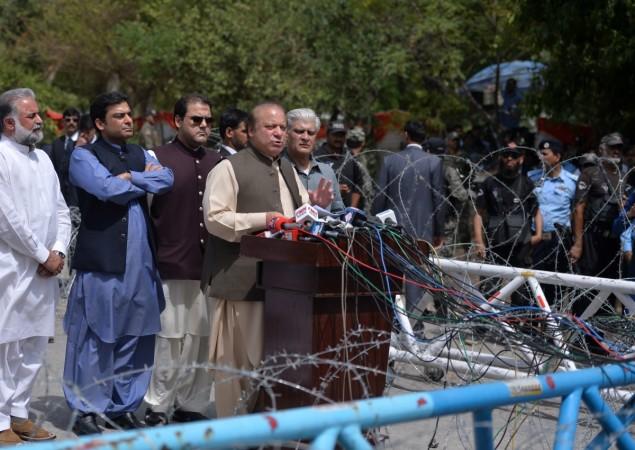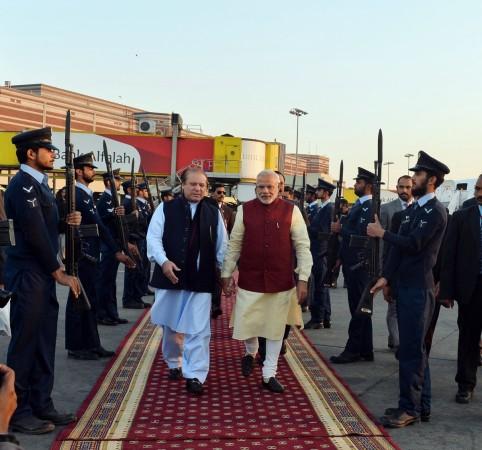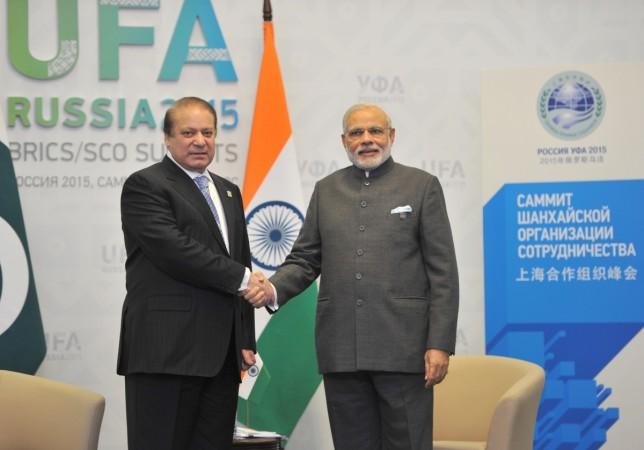
The ouster of Nawaz Sharif as the Prime Minister of Pakistan has not only plunged the country into turmoil but also raised a huge question mark on the process of dialogue and negotiations for peace between India and Pakistan.
On Friday, the Supreme Court of Pakistan disqualified Sharif from holding office following allegations of corruption against him and his family as revealed in the Panama Papers leak. The Joint Investigation Team's (JIT) report had said there was a "significant gap/disparity" between the declared sources of income and the actual wealth accumulated by Sharif and his children.
A history of strain
Relations between both the countries have been strained for over a year now following a terrorist attack on the Indian Air Force base in Pathankot on January 2 last year. The tension between both the countries worsened after an attack on an Army camp killed 19 soldiers in the Uri sector of Jammu and Kashmir in September 2016. According to India, both the attacks were carried out by terrorist groups based in Pakistan.
India retaliated by carrying out surgical strikes on terror launch pads across the Line of Control (LoC) in Pakistan-occupied Kashmir (PoK), which the Pakistan government and the military have continued to deny.
In April 2017, relations deteriorated further after a Pakistani military court sentenced Indian national Kulbhushan Jadhav to death on charges of spying. India postponed dialogues between the two countries over the matter and also approached the International Court of Justice seeking a stay on the death sentence.
Peace talks hampered?
With Sharif's ouster, India has probably lost its best chance at improving relations with Pakistan as the former Pakistan Prime Minister had consistently advocated for peace between the two countries.
"Out of all the prime ministers of Pakistan since 1947, Nawaz Sharif is the only one who has held the largest number of meetings — nearly 15 to 20 — with Indian prime ministers, mostly in third countries... His departure amounts to the removal of a partner in dialogue with a country which has been India's main concern," Satinder K Lambah, former Special Envoy of the Prime Minister of India for Afghanistan and Pakistan, told the Hindu, expressing concern over the possible instability in Pakistan over the next few months.
The political crisis in Pakistan and the way it could pan out would also mean that India would have to exercise caution in the way it deals with its neighbouring country. Sharif enjoyed a personal rapport with Prime Minister Narendra Modi and also attended his oath-taking ceremony in Delhi. He also hosted Modi at his Lahore residence on an unannounced visit.

India and Pakistan, under the leadership of Modi and Sharif, tried to restart the dialogue process. But there have been no talks and negotiations between the two countries for more than a year now, since the terrorist attacks.
"With Sharif stepping down and possibly curtains on his political career, whatever the rapport Sharif and Modi developed — which could have used for resetting the ties sometime later — is gone," strategic affairs expert C Uday Bhaskar was quoted as saying by the Hindustan Times.
Involvement of Pakistan Army
There is concern over the role that the country's military would now play in the next government that comes to power and also on ties between India and Pakistan.
"First of all, we need to see who succeeds Nawaz Sharif and what is immediately in store for Pakistan's policy. Any change of guard in Islamabad is also set to bring change in the country's Indian policy, a subject where the Pakistan Army has the foremost say," an official was quoted as saying by HT.

Even though Sharif's party enjoys a majority in Parliament, the Pakistan Army may try to ensure that his successor from within the Pakistan Muslim League – Nawaz (PML-N) complies more with its strategies, especially when it comes to dealings between India and Pakistan over Kashmir.
"This judicial coup is a big win for the Army-ISI combine. Such are the Pakistani deep state's tentacles that the Supreme Court-established Joint Investigation Team, whose report led to Sharif's ouster, included members of two military intelligence agencies (ISI and Military Intelligence)," strategic affairs expert Brahma Chellaney told HT.
He said that Sharif stepping down and the developments after that only underscore "India's quandary in dealing with a country in which there is no real central authority". He added: "There is a central authority in name, but behind that central authority is a powerful authority that operates covertly. This split authority is at the root of many of Pakistan's ills."

Less impact on 'critical bilateral issues'
Some experts, however, are of the opinion that Sharif's disqualification will not have much impact on the Jadhav case or the Kashmir issue.
"As of now there is very little bilateral contact; so there is unlikely to be any major impact on critical bilateral issues," Lambah told the Hindu.
Meanwhile, Uday Bhaskar pointed out that "a lot in India-Pakistan ties will depend on how the transition to the next caretaker prime minister will be undertaken."

















